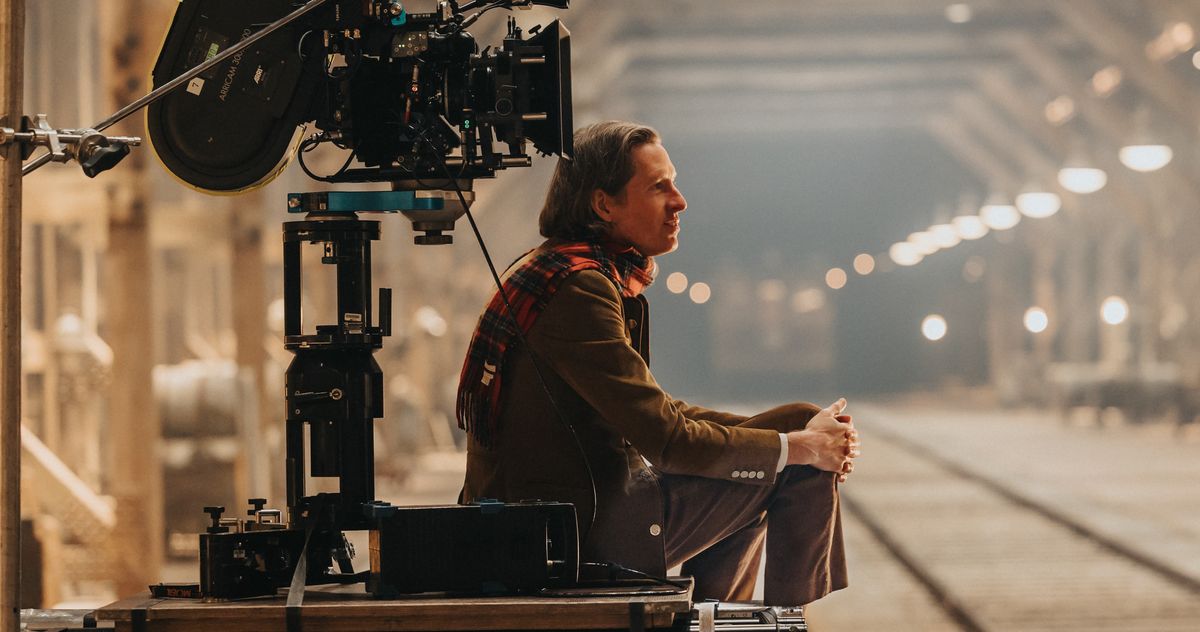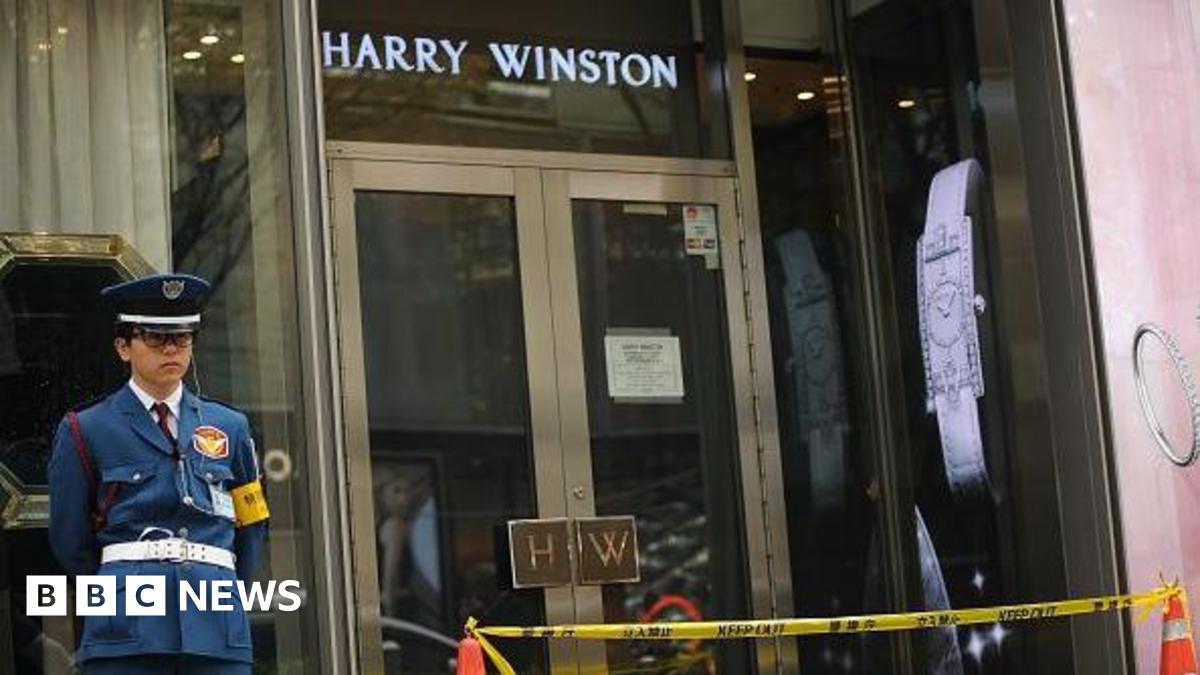Wes Anderson: Exploring The Melancholy Underpinnings Of His Films

Welcome to your ultimate source for breaking news, trending updates, and in-depth stories from around the world. Whether it's politics, technology, entertainment, sports, or lifestyle, we bring you real-time updates that keep you informed and ahead of the curve.
Our team works tirelessly to ensure you never miss a moment. From the latest developments in global events to the most talked-about topics on social media, our news platform is designed to deliver accurate and timely information, all in one place.
Stay in the know and join thousands of readers who trust us for reliable, up-to-date content. Explore our expertly curated articles and dive deeper into the stories that matter to you. Visit Best Website now and be part of the conversation. Don't miss out on the headlines that shape our world!
Table of Contents
Wes Anderson: Exploring the Melancholy Underpinnings of His Whimsical Worlds
Wes Anderson. The name conjures images of meticulously crafted symmetrical shots, pastel-colored palettes, and quirky, often dysfunctional, characters. His films are instantly recognizable, celebrated for their visual flair and offbeat humor. But beneath the surface of the whimsical narratives and meticulously designed sets lies a current of melancholy, a poignant undercurrent that resonates deeply with audiences. This exploration delves into the surprisingly somber themes that underpin the seemingly lighthearted world of Wes Anderson.
Beyond the Symmetrical Shots: A Deeper Look at Anderson's Themes
While Anderson's films are undeniably visually stunning – think the vibrant hues of The Grand Budapest Hotel or the muted tones of Moonrise Kingdom – their beauty often serves as a stark contrast to the emotional turmoil experienced by his characters. His narratives frequently explore themes of loss, grief, and the inherent loneliness of the human condition. This isn't presented in a heavy-handed way; rather, it’s subtly woven into the fabric of his storytelling, adding a layer of complexity that elevates his work beyond mere visual spectacle.
Family Dysfunction and the Search for Belonging: Recurring Motifs
Many of Anderson's films revolve around dysfunctional families or groups of misfits searching for connection. In The Royal Tenenbaums, we witness the fractured relationships within a brilliant but deeply flawed family. Similarly, Fantastic Mr. Fox explores themes of family, loyalty, and the challenges of maintaining relationships amidst external pressures. This recurring motif highlights a central preoccupation in Anderson's work: the universal human need for belonging and the pain of its absence.
Death and Mortality: A Constant Presence in Anderson's Universe
The shadow of mortality hangs heavy over many of Anderson's films. Moonrise Kingdom, with its youthful protagonists embarking on a poignant adventure, subtly explores the ephemeral nature of childhood innocence. The looming presence of death in The Grand Budapest Hotel, despite the film's comedic elements, serves as a powerful reminder of life's transience. Even the seemingly lighthearted Isle of Dogs grapples with themes of loss and abandonment.
Nostalgia and the Past: A Double-Edged Sword
Anderson's films often evoke a strong sense of nostalgia, revisiting idealized versions of the past. This nostalgic lens, however, doesn't always portray a rosy picture. The past is presented as both beautiful and bittersweet, a source of both comfort and regret. This complex portrayal of memory adds another layer to the melancholy undercurrent running through his filmography.
The Power of Visual Storytelling: Enhancing the Emotional Impact
Anderson's distinctive visual style is crucial in conveying these melancholic undertones. His symmetrical compositions, meticulously chosen color palettes, and deliberate pacing create a specific mood, amplifying the emotional weight of the narratives. The visual precision isn't just aesthetically pleasing; it's a powerful tool used to enhance the emotional impact of his stories.
Conclusion: The Enduring Appeal of Wes Anderson's Melancholy
Wes Anderson's films aren't just visually captivating; they are emotionally resonant explorations of the human condition. The blend of quirky humor and poignant melancholy creates a unique cinematic experience, one that leaves a lasting impression long after the credits roll. His ability to subtly weave these complex themes into visually stunning narratives is a testament to his skill as a filmmaker and explains the enduring appeal of his work. What are your thoughts on the melancholy in Wes Anderson's films? Share your opinions in the comments below!

Thank you for visiting our website, your trusted source for the latest updates and in-depth coverage on Wes Anderson: Exploring The Melancholy Underpinnings Of His Films. We're committed to keeping you informed with timely and accurate information to meet your curiosity and needs.
If you have any questions, suggestions, or feedback, we'd love to hear from you. Your insights are valuable to us and help us improve to serve you better. Feel free to reach out through our contact page.
Don't forget to bookmark our website and check back regularly for the latest headlines and trending topics. See you next time, and thank you for being part of our growing community!
Featured Posts
-
 Cannes Before Cell Phones Hilarious And Unconventional Images
May 18, 2025
Cannes Before Cell Phones Hilarious And Unconventional Images
May 18, 2025 -
 Rediscovering Cannes A Look At Fun Ludicrous Pre Smartphone Photography
May 18, 2025
Rediscovering Cannes A Look At Fun Ludicrous Pre Smartphone Photography
May 18, 2025 -
 The Wild Side Of Cannes Unseen Photos From Before The Smartphone Era
May 18, 2025
The Wild Side Of Cannes Unseen Photos From Before The Smartphone Era
May 18, 2025 -
 Cannes Through A Retro Lens Crazy And Unforgettable Photographs
May 18, 2025
Cannes Through A Retro Lens Crazy And Unforgettable Photographs
May 18, 2025 -
 Eurovision Final Israel Secures Spot Despite Public Outcry
May 18, 2025
Eurovision Final Israel Secures Spot Despite Public Outcry
May 18, 2025
Latest Posts
-
 Community Mourns Fallen Firefighters Honored Following Fatal Business Park Blaze
May 18, 2025
Community Mourns Fallen Firefighters Honored Following Fatal Business Park Blaze
May 18, 2025 -
 Unbeaten Streak Twins 13 Game Win Streak Fueled By Dominant Pitching
May 18, 2025
Unbeaten Streak Twins 13 Game Win Streak Fueled By Dominant Pitching
May 18, 2025 -
 Tokyo Jewellery Heist Brits Could Face Extradition To Japan
May 18, 2025
Tokyo Jewellery Heist Brits Could Face Extradition To Japan
May 18, 2025 -
 Sfpd Officer Arrested Dui Crash Results In Several Injuries
May 18, 2025
Sfpd Officer Arrested Dui Crash Results In Several Injuries
May 18, 2025 -
 Sean Combs Trial What Role Will Ex Girlfriend Cassie Play
May 18, 2025
Sean Combs Trial What Role Will Ex Girlfriend Cassie Play
May 18, 2025
